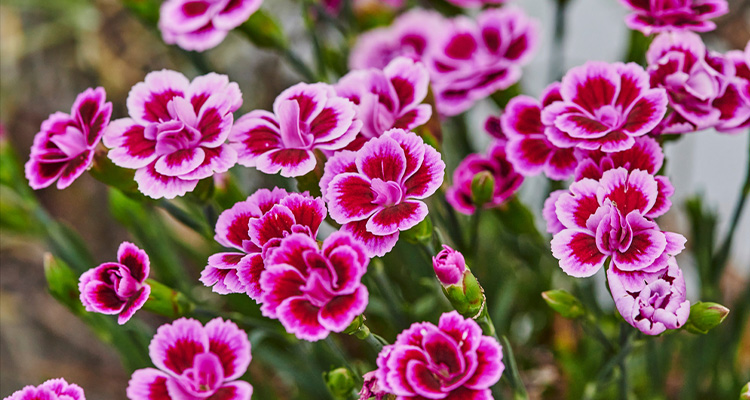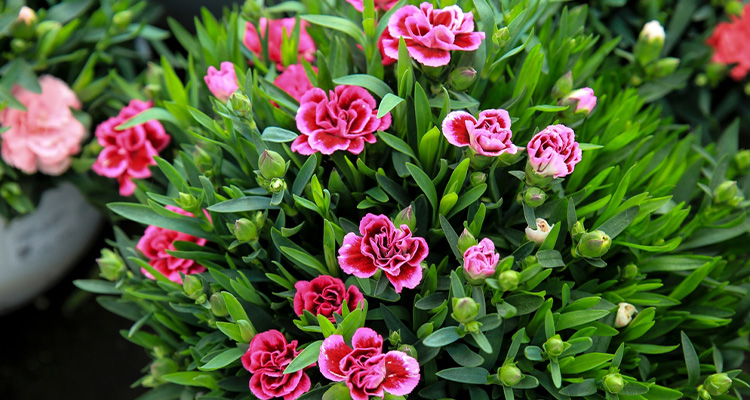
What We've Included
When to Plant | How to Plant | Where to Plant | Feeding Dianthus | After Care |
Common Issues | Inspiration
When to Plant Dianthus
You can sow Dianthus seeds indoors in spring and summer and plants and be grown directly outside from mid-spring, summer, and early autumn.

How to Plant Dianthus
Planting Dianthus Modules & Pots
Our modules and pots are incredibly easy to plant and maintain. Whether you’re growing them directly outside into the border or in a container or keeping them indoors over winter, our modules are a breeze to care for from the moment they arrive.
- Dig a hole in the border that’s big enough to house the entire module. If planting in pots, fill a large pot halfway with potting soil and then make several holes that can hold the modules. Do this until the top of the soil from the module is just below the top of the pot.
- Fill around the modules with soil and firm them down gently.
- Water well and you’re done!
Where to Plant Dianthus
Dianthus love well-drained soil and can tolerate several growing conditions. Ensure they’re planted somewhere sunny or in partial shade.

Feeding Dianthus
Perennial varieties benefit from feeding in late spring (an organic fertiliser will work wonders). You can feed dianthus that are grown in pots with a high potash liquid feed fortnightly throughout summer. This will help them grow more flowers for longer.
After Care
When to water Dianthus
Water every few days while they’re settling in, or every day in periods of drought. Try not to overwater them though, as they don’t like to sit in waterlogged soil.
Deadheading Dianthus
Deadhead spent flowers to keep your display looking tidy and to encourage further flowering.
Dividing Dianthus
Perennial varieties are best separated in spring. Simply lift them out of the ground and cut them in half, replanting the second half elsewhere in the garden.
Common Issues and How to Solve Them
Dianthus can become victims of pests like slugs, snails, aphids, and even rabbits. Pop some horticultural grit around the base of the plant to ward off slugs and snails. Aphids can be overcome with blasts of water. Rabbits can also be deterred when plants are surrounded by wire, so give that a go if you find them munching on your blooms.
When do Dianthus Flower?
Most Dianthus will flower between April and September. This may differ depending on the type you have purchased but do be extra sure, you can see their flowering months on their online product pages.
Ready to Shop?
Find some inspiration for your garden
